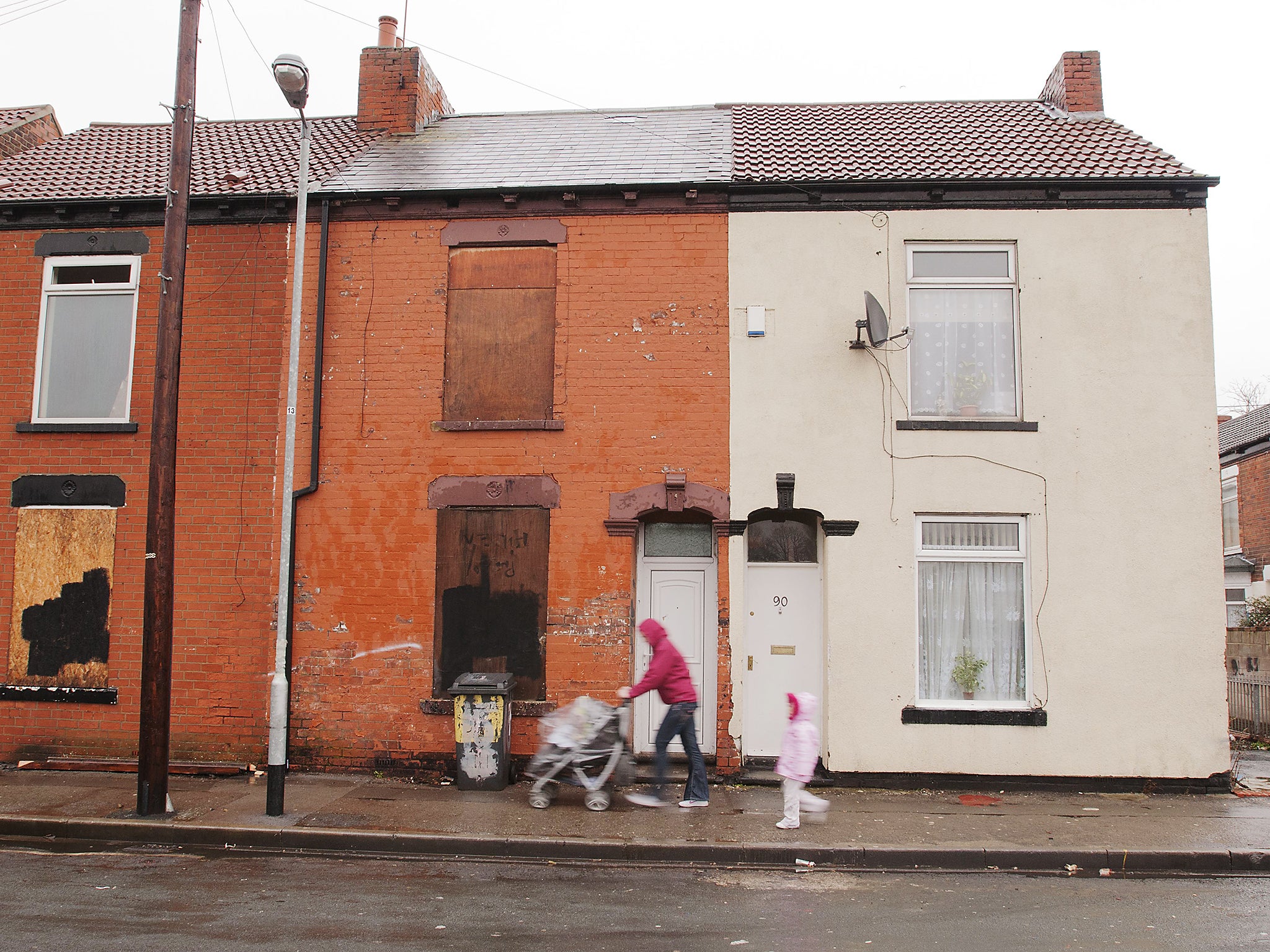Number of families in temporary accommodation up 64% since 2010
Surge branded 'yet another disastrous consequence' of lack of social housing as campaigners warn 'cramped, unsuitable' temporary accommodation can have 'devastating' impact on people’s lives

Your support helps us to tell the story
From reproductive rights to climate change to Big Tech, The Independent is on the ground when the story is developing. Whether it's investigating the financials of Elon Musk's pro-Trump PAC or producing our latest documentary, 'The A Word', which shines a light on the American women fighting for reproductive rights, we know how important it is to parse out the facts from the messaging.
At such a critical moment in US history, we need reporters on the ground. Your donation allows us to keep sending journalists to speak to both sides of the story.
The Independent is trusted by Americans across the entire political spectrum. And unlike many other quality news outlets, we choose not to lock Americans out of our reporting and analysis with paywalls. We believe quality journalism should be available to everyone, paid for by those who can afford it.
Your support makes all the difference.The number of households living in temporary accommodation has surged by 64 per cent since the Tories came to power in 2010, new figures show.
Almost 79,000 families were staying in temporary housing in the last three months of last year because they didn't have a permanent home, compared with 48,010 in the same period eight years before.
The figures, published by the Government on Thursday, have been branded "unacceptable" by campaigners, who warn that temporary accommodation can have a "devastating" impact on people’s lives and mental health.
There had been a significant reduction in families living in such conditions before the Coalition government came into power, with the number having fallen by 52 per cent between 2004 and 2010 under the Labour government.
But the figure has crept up in each of the past seven years, from 69,140 in the last quarter of 2015, to 75,740 in the same period in 2016 and 78,930 at the end of last year.
Nearly 58,000 families have been accepted as homeless by their local council in the past year, equating to an increase of 8 per cent over the last five years.
Losing a private tenancy remains the single biggest cause of homelessness, with 28 per cent of all homeless households in priority need becoming homeless after being evicted from a privately rented home in the last year.
The rise in evictions coincides with increasing rents, welfare changes which have seen cuts in support for families and a shortage of affordable homes across the UK.
It comes as separate government figures show the number of children in poverty across the UK has surged by 100,000 in a year, prompting calls for the Government to urgently review cuts to child welfare.
Jon Sparkes, chief Executive at Crisis, said: “It's unacceptable that nearly 79,000 households across England are finding themselves homeless and with no choice but to live in temporary accommodation such as B&Bs and hostels.
"Temporary accommodation is often cramped, unsuitable, and sometimes even dangerous. It can have a devastating impact on people’s lives and mental health, and it's no place for anyone to call home.
"Worryingly, our research shows that the number of households in the worst forms of temporary accommodation is set to double by 2026 if nothing is done to address the problem. This can't go on."
Polly Neate, CEO of homelessness charity Shelter, said the "crisis" was being fuelled by a "crippling combination" of increasing rents, welfare changes and an underlying lack of affordable homes.
“It’s no surprise that eviction from a privately rented home is the biggest cause of homelessness. Families up and down the country are battling to pay their rent or find somewhere they can afford," she continued.
"Rents eat up such a huge chunk of income that many families then struggle to provide essentials like putting food on the table and paying their utility bills.
“To prevent thousands more families from sliding into homelessness, the Government must get on with the job of building many more homes that are genuinely affordable for families to rent and making lettings more stable and secure.”
Chief executive of the National Housing Federation, David Orr, said the growing numbers of people in temporary housing since 2010 was "yet another disastrous consequence" of the lack of social housing in England.
"B&Bs and hostels are often overcrowded and provide little privacy. They are in no way acceptable places to bring up children. Nor is paying private landlords to run these places a good use of tax payers’ money," he said.
“Family homes can be expensive to build and for seven years there was no Government money to build houses for social rent. Of course we’re now in desperate need of more."
Join our commenting forum
Join thought-provoking conversations, follow other Independent readers and see their replies
Comments